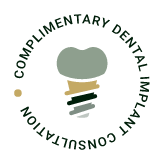 Your teeth can last for a lifetime with the correct care. Brushing and flossing lessen your risk of preventable issues that can lead to tooth loss, like cavities and gum disease. Routine dental appointments allow your dentist to monitor your dental health to detect anything concerning early to keep your mouth healthy. However, did you know there’s another important piece to good oral health? Believe it or not, hydration is key to keeping your teeth and gums healthy.
Your teeth can last for a lifetime with the correct care. Brushing and flossing lessen your risk of preventable issues that can lead to tooth loss, like cavities and gum disease. Routine dental appointments allow your dentist to monitor your dental health to detect anything concerning early to keep your mouth healthy. However, did you know there’s another important piece to good oral health? Believe it or not, hydration is key to keeping your teeth and gums healthy.
Dehydration Causes a Dry Mouth
A dry mouth is an early warning sign of dehydration. It means your body is producing less saliva, which is necessary to keep your mouth healthy. A dry mouth creates a great environment for oral bacteria growth.
An overgrowth of bacteria can affect your dental health negatively. Too much cavity-causing bacteria can erode your enamel over time, causing tooth decay. No amount of brushing can reverse cavities.
Bacteria also hide in plaque and tartar, which can irritate and inflame your gums. This can lead to gum disease, which is a leading cause of tooth loss. The infection can also affect your general health. Gum disease has been linked to heart disease, diabetes, Alzheimer’s, and many other conditions.
It’s not uncommon to experience bad breath. Bacteria accumulation can cause unpleasant odors. Cavities and gum disease can also cause chronic bad breath.
Hydration Promotes a Healthy Smile
Healthcare professionals recommend drinking at least eight 8-oz glasses of water every day to keep your body healthy. Hydration will ensure sufficient saliva production to keep your mouth moist. Saliva cleanses your teeth and gums to remove food residue and bacteria. Every sip of water will also rinse your mouth to keep it clean between brushing and flossing.
Choose Water from the Tap
Dentists recommend choosing tap water instead of bottled. Fluoride is added to public water systems to combat cavities. Fluoride occurs naturally in the environment, known as “nature’s cavity fighter.” It makes enamel more resistant to decay. Tap water will help you remineralize your enamel and reduce the effects of harmful oral bacteria.
Managing a Dry Mouth
Dehydration isn’t the only culprit of a dry mouth. Certain medications and medical conditions can affect saliva production. Besides drinking plenty of water, chewing sugarless gum will increase saliva production. Your dentist can also recommend specialty mouthwash to keep your mouth moist.
A dry mouth isn’t anything to ignore. Commit to drinking at least 8 glasses of water daily to keep your mouth and body healthy.
About Dr. Edward J. Dooley
Dr. Dooley achieved his dental degree at the University of Pennsylvania School of Dental Medicine and has continued his education in various specialties, like Invisalign and dental implants. He is a proud member of various professional organizations, including the American Dental Association. Request an appointment through his website or call his office at (732) 820-5493.


